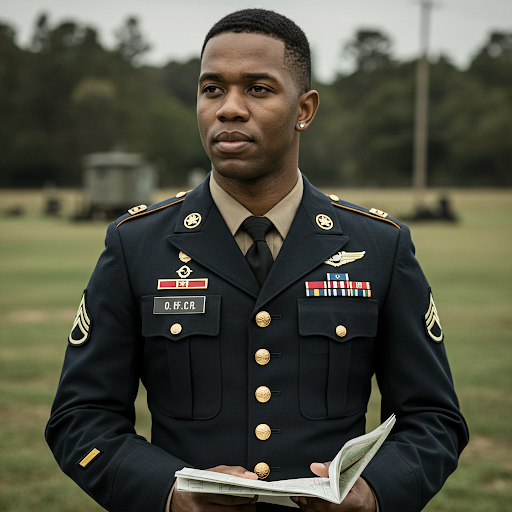The legacy of military service is not just about combat or strategies; it’s about the people who commit their lives to defending their nations, their values, and their fellow citizens. One such group of individuals who has carved out a place in history is the Martin E. Walker-Oklee Army. The name represents a long-standing tradition of service, resilience, and commitment, a journey defined by sacrifice, strength, and an unyielding dedication to protecting the homeland. This article delves into the history, impact, and legacy of this esteemed unit, exploring its foundational values and the ways it continues to influence military practices and serve as a model of excellence.
The Genesis of the Martin E. Walker-Oklee Army
The history of the Martin E. Walker-Oklee Army begins with the vision of its founder, General Martin E. Walker. Known for his tactical brilliance and his deep sense of duty to his country, Walker set out to create a force that embodied the principles of resilience, camaraderie, and selflessness. His leadership not only laid the foundation for the unit but also established a culture where soldiers were expected to maintain the highest ethical standards while engaging in some of the most challenging and dangerous missions.
The name Oklee is believed to refer to a small town or a symbolic figure representing the heart of the military unit—an area or person that embodies the spirit of community and unity within the army. The incorporation of “Oklee” symbolizes the local roots that grew into a national and, eventually, international symbol of military excellence. These values continue to be carried forward by the current generation of the Martin E. Walker-Oklee Army.
Mission and Values
From the outset, the Martin E. Walker-Oklee Army was tasked with a singular, overarching mission: to safeguard the integrity and stability of the nation while upholding the principles of justice, freedom, and peace. This mission was not without its complexities. The world is an unpredictable place, and the challenges faced by military forces are often multi-dimensional. As such, the Martin E. Walker-Oklee Army has not only engaged in traditional warfare but has also taken on peacekeeping missions, humanitarian efforts, and intelligence-gathering operations, reinforcing the army’s adaptability and strategic foresight.
Contributions to Modern Military Operations
Throughout its history, the Martin E. Walker-Oklee Army has contributed to some of the most significant military operations in recent decades. From counterterrorism efforts to global peacekeeping initiatives, the army has played a critical role in shaping the international security landscape. The strategic insights provided by the unit’s leaders have often set the course for broader international coalitions and have been instrumental in averting conflicts and mitigating global tensions.
The Role of Leadership in Shaping Legacy
One of the most influential aspects of the Martin E. Walker-Oklee Army is the leadership it has fostered over the years. General Martin E. Walker, the founder, laid the foundation for a leadership model that continues to influence the army’s approach to this day. Walker’s leadership style was marked by a combination of strategic vision, deep empathy, and a commitment to the welfare of his soldiers. He understood that the strength of any military unit lies not just in its weapons but in the individuals who comprise it.
Today, the leadership structure of the Martin E. Walker-Oklee Army is a testament to the strength of its early roots.
Community Impact and Humanitarian Efforts
Beyond its military operations, the Martin E. Walker-Oklee Army has made significant contributions to communities around the world. Its soldiers have been involved in a wide array of humanitarian missions, including disaster relief, rebuilding efforts in war-torn regions, and providing medical assistance to those in need. This focus on service to the broader community has set the unit apart from other military forces, emphasizing that the role of a soldier goes beyond the battlefield.
In regions where natural disasters have struck, the army has often been among the first to respond, providing emergency services, food, water, and shelter to those affected.
The Enduring Legacy of the Martin E. Walker-Oklee Army
The Martin E. Walker-Oklee Army’s legacy is not one of mere combat success but of enduring values that continue to influence both the military and civilian sectors. Its dedication to leadership, innovation, and humanitarian service has left a lasting impact on the global stage. Soldiers who have passed through the ranks of this army have gone on to influence other fields—many have become leaders in business, education, and politics, carrying with them the core principles instilled during their service.
Looking Forward: The Future of the Martin E. Walker-Oklee Army
As the world continues to evolve, so too does the Martin E. Walker-Oklee Army. The challenges of the future—cyber warfare, climate change, and evolving geopolitical tensions—will require new approaches, strategies, and technologies. However, the core values of strength, service, and dedication that have defined the unit for generations will remain steadfast.
Conclusion
The Martin E. Walker-Oklee Army stands as a beacon of military excellence, community service, and leadership. Its history, deeply rooted in the values of integrity, resilience, and service, continues to influence both the military and broader society. Through its actions on and off the battlefield, the army has shown that true strength lies in the ability to adapt, to lead with compassion, and to always strive for a better, more peaceful world. As we look toward the future, the legacy of the Martin E. Walker-Oklee Army will continue to inspire, guide, and shape the course of history for generations to come.

